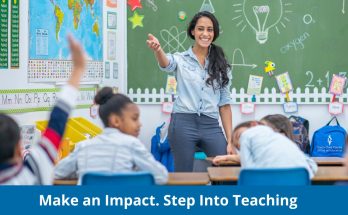In an educational landscape often characterized by a “one-size-fits-all” approach, a compelling argument is emerging for a more tailored, student-centric method: personalized learning. This innovative pedagogical philosophy recognizes a fundamental truth about human cognition: every individual learns differently. Students arrive in classrooms with unique backgrounds, diverse learning styles, varying paces of comprehension, distinct interests, and a spectrum of prior knowledge. Expecting all learners to thrive within a uniform instructional model is not only inefficient but can also lead to disengagement, underachievement, and a stifled love of learning for many. The case for personalized learning is built on the premise that optimizing education for the needs of each learner is not merely an idealistic aspiration but a practical necessity for fostering deeper understanding, greater engagement, and more equitable outcomes.
At its core, personalized learning is about tailoring the instructional approach, pace of learning, and even the content and sequencing of curriculum to meet the specific needs and interests of individual students. This stands in stark contrast to the traditional model, where a teacher delivers the same lesson to a diverse group, often moving on when the majority has grasped a concept, inadvertently leaving some students behind while holding back others who are ready for more advanced material. Personalized learning seeks to eliminate these inherent inefficiencies by acknowledging and responding to individual differences.
One of the most immediate and tangible benefits of personalized learning is the enhanced student engagement it fosters. When learning is directly relevant to a student’s interests and aligns with their preferred modes of interaction, they become active participants rather than passive recipients. Imagine a student with a passion for environmental science delving into a self-paced module on sustainable energy, or a visual learner exploring historical events through interactive simulations rather than just reading a textbook. This kind of agency and choice ignites intrinsic motivation, transforming learning from a chore into an exciting journey of discovery. When students feel their unique identity is acknowledged and catered to, their enthusiasm for academic pursuits naturally increases.
Beyond engagement, personalized learning demonstrably improves academic performance. By allowing students to progress at their optimal pace, those who need more time to master a concept receive the necessary support without feeling rushed or left behind. Conversely, advanced learners are not held back, instead being challenged with more complex material or deeper dives into topics that pique their curiosity. This individualized pacing ensures that students spend more time operating within their “zone of proximal development,” where learning is most effective and efficient. Teachers, armed with richer data about individual student progress, can then provide targeted interventions or extensions, making their instruction more impactful for every learner in the classroom. This granular understanding of student needs allows for instruction that truly meets each student where they are and propels them forward.
Furthermore, personalized learning plays a crucial role in developing essential 21st-century skills that extend far beyond academic content. When students are involved in shaping their learning paths, they naturally cultivate self-direction, goal-setting abilities, and self-advocacy. They learn to identify their strengths and weaknesses, understand their preferred learning strategies, and seek out the resources they need to succeed. This fosters a sense of ownership over their education, preparing them to be lifelong learners who can adapt to new challenges and continuously acquire new knowledge throughout their careers. The emphasis on project-based learning, often a vehicle for personalization, also hones critical thinking, problem-solving, and collaboration skills as students work on authentic, interest-driven challenges.
The implementation of personalized learning is significantly aided by modern technology. Adaptive learning platforms can provide real-time feedback, customize content based on a student’s performance, and offer a variety of multimedia resources to cater to different learning styles. Data analytics tools can help teachers track individual progress, identify learning gaps, and inform instructional decisions. However, it is crucial to emphasize that personalized learning is not simply about putting a student in front of a computer. Technology serves as a powerful enabler, freeing up teachers to act as facilitators, mentors, and coaches, engaging in more meaningful one-on-one or small-group interactions. The human element of teaching remains indispensable, providing the emotional support, encouragement, and nuanced guidance that technology alone cannot replicate.
Of course, transitioning to a personalized learning model presents its own set of challenges. It requires a significant shift in pedagogical mindset for educators, often demanding new training, curriculum redesign, and a willingness to embrace flexible classroom structures. Managing varied learning paths for numerous students can seem daunting without the right tools and strategies. Moreover, ensuring equity in access to technology and resources is paramount to prevent exacerbating existing disparities. However, forward-thinking educational institutions are demonstrating that these challenges are surmountable with strategic planning, ongoing professional development, and a commitment to innovation.
In conclusion, the case for personalized learning is compelling because it aligns education with the inherent diversity of human learners. It moves beyond the limitations of a uniform approach to embrace an individualized journey, leading to greater student engagement, improved academic outcomes, and the cultivation of vital skills for the future. By placing the student at the center of the learning experience, schools can foster a deeper love of learning, build confidence, and ultimately prepare a generation of adaptable, self-directed individuals who are not just knowledgeable, but truly empowered to navigate and shape their own unique paths in a complex world. It’s an investment not just in academic metrics, but in the holistic development and lifelong success of every student.


